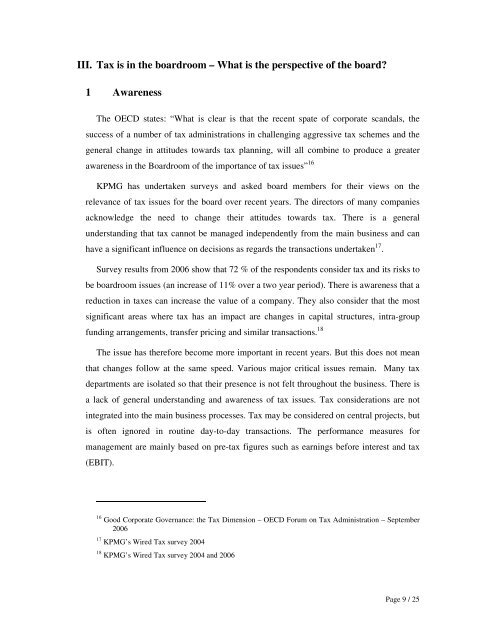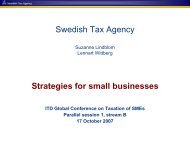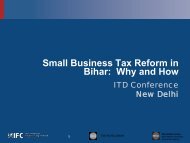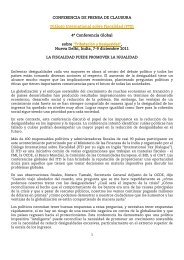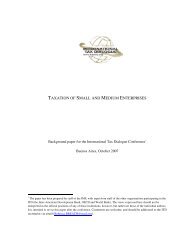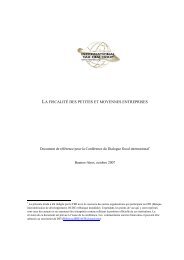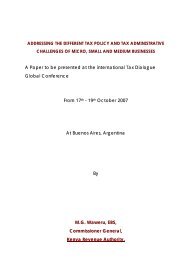Tax Risk Management and Board Responsibility - International Tax ...
Tax Risk Management and Board Responsibility - International Tax ...
Tax Risk Management and Board Responsibility - International Tax ...
Create successful ePaper yourself
Turn your PDF publications into a flip-book with our unique Google optimized e-Paper software.
III. <strong>Tax</strong> is in the boardroom – What is the perspective of the board?<br />
1 Awareness<br />
The OECD states: “What is clear is that the recent spate of corporate sc<strong>and</strong>als, the<br />
success of a number of tax administrations in challenging aggressive tax schemes <strong>and</strong> the<br />
general change in attitudes towards tax planning, will all combine to produce a greater<br />
awareness in the <strong>Board</strong>room of the importance of tax issues” 16<br />
KPMG has undertaken surveys <strong>and</strong> asked board members for their views on the<br />
relevance of tax issues for the board over recent years. The directors of many companies<br />
acknowledge the need to change their attitudes towards tax. There is a general<br />
underst<strong>and</strong>ing that tax cannot be managed independently from the main business <strong>and</strong> can<br />
have a significant influence on decisions as regards the transactions undertaken 17 .<br />
Survey results from 2006 show that 72 % of the respondents consider tax <strong>and</strong> its risks to<br />
be boardroom issues (an increase of 11% over a two year period). There is awareness that a<br />
reduction in taxes can increase the value of a company. They also consider that the most<br />
significant areas where tax has an impact are changes in capital structures, intra-group<br />
funding arrangements, transfer pricing <strong>and</strong> similar transactions. 18<br />
The issue has therefore become more important in recent years. But this does not mean<br />
that changes follow at the same speed. Various major critical issues remain. Many tax<br />
departments are isolated so that their presence is not felt throughout the business. There is<br />
a lack of general underst<strong>and</strong>ing <strong>and</strong> awareness of tax issues. <strong>Tax</strong> considerations are not<br />
integrated into the main business processes. <strong>Tax</strong> may be considered on central projects, but<br />
is often ignored in routine day-to-day transactions. The performance measures for<br />
management are mainly based on pre-tax figures such as earnings before interest <strong>and</strong> tax<br />
(EBIT).<br />
16 Good Corporate Governance: the <strong>Tax</strong> Dimension – OECD Forum on <strong>Tax</strong> Administration – September<br />
2006<br />
17 KPMG’s Wired <strong>Tax</strong> survey 2004<br />
18 KPMG’s Wired <strong>Tax</strong> survey 2004 <strong>and</strong> 2006<br />
Page 9 / 25


